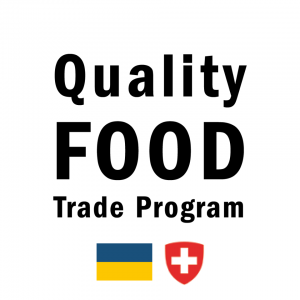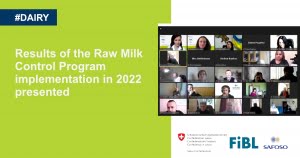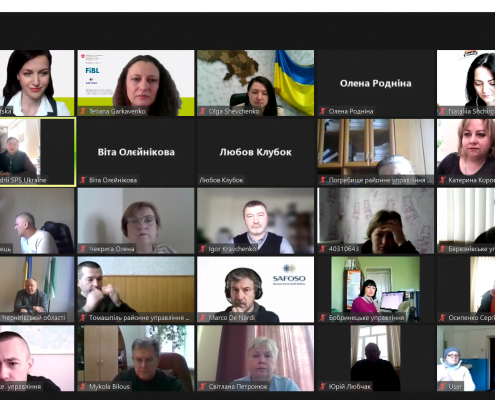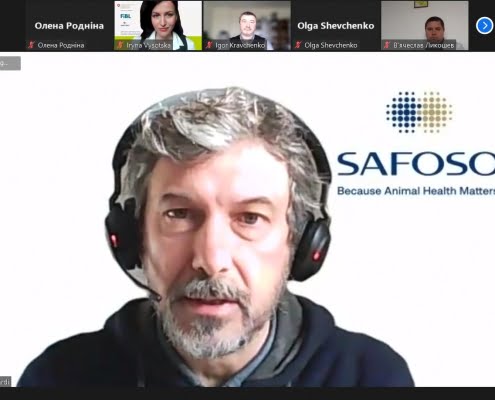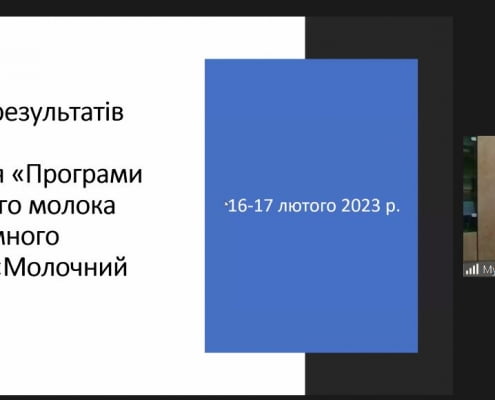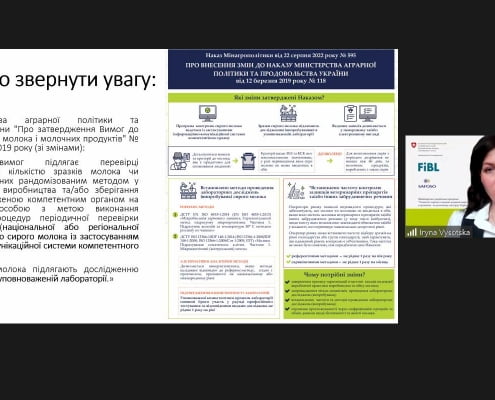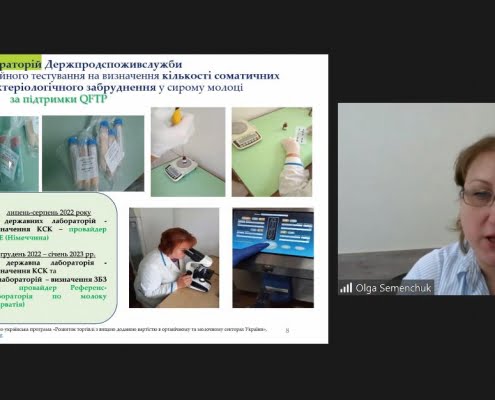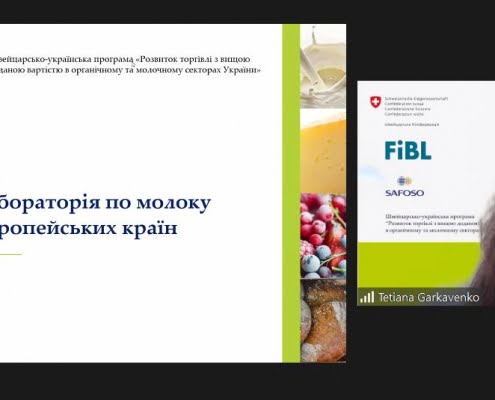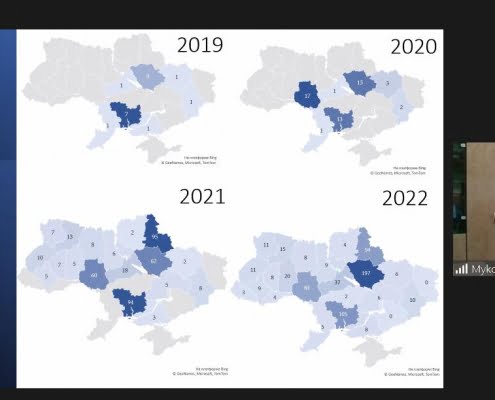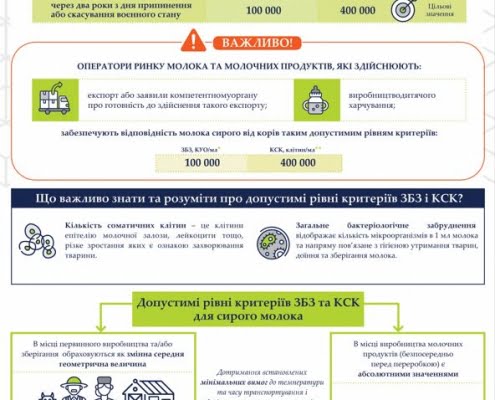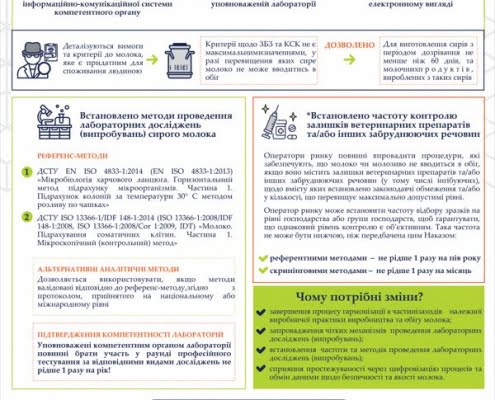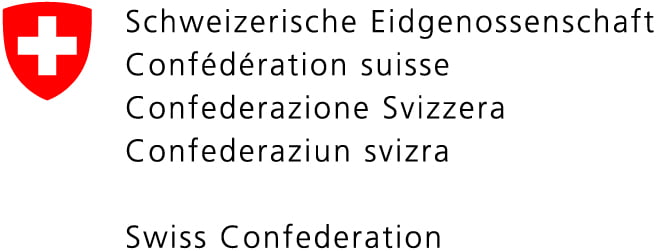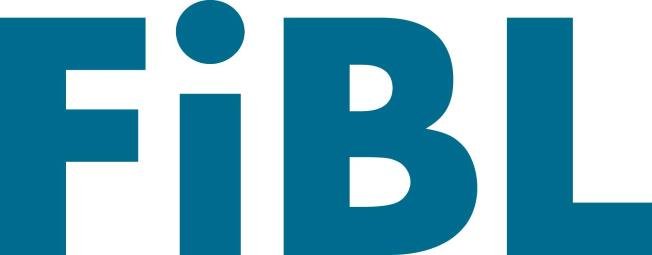The public discussion of the results of the Raw Milk Control Program implementation in 2022 was held on 16-17 February. Three years ago, on 15 February 2019, the State Service of Ukraine on Food Safety and Consumer Protection approved the Concept of the Pilot Project on Introduction of the Raw Milk Control Program Based on the Dairy Module (hereinafter – the Control Program) in four oblasts: Vinnytsia, Mykolaiv, Poltava, and Kharkiv.
Order No 118 of the Ministry of Agrarian Policy and Food of Ukraine “On Approving the Requirements to Safety and Quality of Milk and Dairy Products” dated 12 March 2019 (as amended) (hereinafter – Order No 118/2019) established the legal framework for the program further rollout at the national level. In his speech Andrii Pyvovarov, Director of Department of State Policy in Sanitary and Phytosanitary Measures, Ministry of Agrarian Policy and Food of Ukraine, thanked all the experts involved in the process of developing the legal regulation and noted that it is an important step towards approximation to the EU requirements, and further implementation of new requirement does not only create new opportunities for the Ukrainian dairy export, but also ensures improvement of the quality to milk and dairy products for internal consumption.
Olga Shevchenko, Acting Head of the State Service of Ukraine on Food Safety and Consumer Protection, confirmed that during the war the number of operators authorized for export to the EU continues to increase. This is the result of continuous improvement and effort of all the stakeholders to implement the new requirements. The work on the Dairy Module improvement is ongoing, taking into account the wishes of its direct users. “The flagship role of the first pilot oblasts should be highlighted, as well as fruitful cooperation with the Ministry of Agrarian Policy and Food of Ukraine in terms of adaptation to the EU legislation and constant support of this process from the Swiss-Ukrainian program “Higher Value Added Trade from the Organic and Dairy Sector in Ukraine” (QFTP)”, stressed Olga Shevchenko.
Igor Kravchenko, Local Program Manager of Swiss-Ukrainian program “Higher Value Added Trade from the Organic and Dairy Sector in Ukraine” (hereinafter – QFTP), and Marco De Nardi, Senior International Short-term Advisor “Dairy”, QFTP, (SAFOSO AG, Switzerland) welcomed the event participants.
Mykola Bilous, Deputy Director of the Department of Food Safety, Veterinary Medicine, Head of Division of State Control and Accounting of Food Business Operators, presented the key results and achievements of the Control Program by oblasts. Thus, the acts of samplings from 536 FBOs were properly registered, stored, and sent to the laboratory in 2022. In total, milk testing was conducted in 36 authorized SSUFSCP laboratories of the regional (18) and interrayon (18) levels in 20 oblasts of Ukraine for the parameters regulated by Article 40 of the Law of Ukraine “On State Control over Compliance with Legislation on Food Products, Feed, By-Products of Animal Origin, Animals’ Health and Welfare” with the frequency defined in Order No 118/2019, namely:
- total bacterial count (TBC) (CFU) in 1 ml of milk at 30 °С – at least twice a month;
- somatic cell count (SCC) in 1 ml of milk – at least once a month.
Iryna Vysotska, Dairy Component Coordinator, QFTP, in her speech stressed the legislative changes in the dairy sector and their further integration into the Control Program implementation algorithm. In addition, she presented the analysis of quantitative results of laboratory testing of raw milk samples. Thus, the share of samples tested for TBC whose results do not exceed the permissive levels (>500,000 CFU/ml) is 1.5% of the total number of samples tested, and for SCC the share of non-compliant samples (>500,000 cells/ml) is 0.7%. However, the detailed statistical analysis of the test results based on the Dairy Module shows that the quality of milk in Ukraine is not homogeneous and, therefore, milk producers have to continue working on the improvement of their production practices to ensure more stable parameters of milk compliance.
Bohdan Pustovit, Chief Specialist of the IT Department of the SSUFSCP, provided more details about the direction for the Dairy Module modernization and improvement.
Olga Semenchuk, Deputy Director of Department, Head of Directorate for Food and Feed Safety of the SSUFSCP, gave the presentation on the importance of participation of the SSUFSCP laboratories in the international professional testing rounds for SCC and TBC in raw milk.
Tetiana Garkavenko, Senior Advisor for the Dairy Sector Component, QFTP, presented the EU experience of national reference laboratories for milk, their role in the Control program implementation, and provided more details on the examples from Poland and Lithuania based on the results of the recent study tour to the laboratories in these countries. Ivan Pankiv, Director of Lviv Agrarian Extension Service, initiated the study of the neighboring counties’ experience. In his speech, he focused the participants’ attention on the importance of monthly testing of milk from individual cows to assess productivity and manage the dairy herd.
The two-day event was in the online format which allowed over 200 participants from all over Ukraine to join it. During the webinar the participants discussed the best practices and lessons learnt and also defined the next steps in implementation of the Roadmap for introduction of the Control Program.
The recording and presentations are available at the QFTP website.
For reference: The Raw Milk Control program is introduced pursuant to the Laws of Ukraine “On Milk and Dairy Products”, “On State Control over Compliance with Legislation on Food Products, Feed, By-Products of Animal Origin, Animals’ Health and Welfare”, based on the Roadmap developed in the frame of the Swiss-Ukrainian program “Higher Value Added Trade from the Organic and Dairy Sector in Ukraine” (Quality FOOD Trade Program, QFTP), implemented by the Research Institute of Organic Agriculture (FiBL, Switzerland) in partnership with SAFOSO AG (Switzerland).
